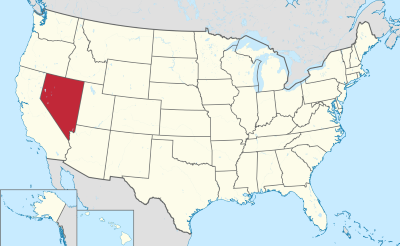Here you’ll find the largest list with Nevada hosting reviews. We’ve listed all Nevada web hosting providers with our UNCENSORED review and that of users.

Quick Facts
Internet Speed: 53.6 Mbps downlink; 4.7 Mbps uplink
Population: 2,89 million
Internet Coverage: over 85% of residents
Main Internet services: Cable, DSL, Fiber
Main Internet Service Providers: Cox Communications, CenturyLink, AT&T
Colocation Datacenters: 16
Colocation Market: Emerging
Internet in Nevada
According to Akamai.com, the average downlink Internet speed in Nevada is 53.6 Mbps and the average uplink speed is 4.7 Mbps.
In 2016, the population of Nevada was 2,89 million. Over 85% of residents have access to the Internet, especially broadband connections.
Main Internet services provided in Nevada are as follows:
– Cable – 90% coverage
– DSL – 85% coverage
– Fiber – less than 20% coverage
Main Internet Service Providers located in Nevada are the following:
– Cox Communications (Cable) – 90% availability
– CenturyLink (DSL) – 85% availability
– AT&T (Fiber) – less than 20% availability
Gigabit Internet in Nevada
Gigabit Internet services are scarcely available in Nevada, as reflected by the low penetration rate of only 15%. In November 2016, AT&T, one of the biggest players in the local market, announced that they would start rolling out gigabit services to residential customers located in select areas in Reno. Another important Internet Service Provider, Lightcore Group, currently provides gigabit services in downtown Sparks. Gigabit Internet is also available in Las Vegas, but in certain neighborhoods exclusively.
Colocation Datacenters in Nevada
According to datacentermap.com, there are currently 16 colocation datacenters established in Nevada. Most datacenters are located in Las Vegas (13), while the rest are located in Reno (3).
– ViaWest, Inc.
– Southwest Data Centers
– Level 3 Communications
– Syptec
– tw telecom
– Fiberhub
Prominent Colocation Providers – ViaWest
One of the largest colocation providers located in Las Vegas is ViaWest. This company operates a total of three colocation datacenters in the region, which serve as some of the most reliable locations for colocation services in western U.S. The largest facility operated by this company is the Lone Mountain Datacenter, which offers clients 66,000 square feet of datacenter space. The datacenter is an ideal choice for customers looking for colocation, cloud or other managed services. Amenities include: redundant UPS power and cooling equipment, A&B source power circuit delivery capabilities, multiple utility power feeds, 16 MW redundant, fault-tolerant diesel power generation capacity, leasing of private suites and cages. Additionally, the datacenter features carrier neutrality, with on-site access to over 5 Tier 1 telecommunications providers and other carrier hotels located in close proximity.
Prominent Colocation Providers – Southwest Datacenters
Another important colocation provider established in Las Vegas is Southwest Datacenters. The company operates a 5,000-square-foot facility located in the central business district. The datacenter features 1U, rack, cabinet, as well as caged space. Amenities: N+1 power, backed by a 250 kVA diesel generator, N+1 cooling, PCI-DSS, SOX and HIPPA compliance. The facility is carrier neutral, with access to Embarq, XO, Cox Communications, as well as AT&T.
Colocation Industry in Nevada
Thanks to Las Vegas and Reno as of late, the colocation industry in Nevada is quickly becoming a first choice for customers looking for a strong presence in the west. Las Vegas in particular is regarded as one of the fastest-growing colocation markets in the United States, and has the edge over surrounding markets due to many favourable reasons.
Advantages for Colocation
Advantages for colocation include the following:
– developed technical infrastructure (in Las Vegas);
– numerous datacenter tax incentives, along with relatively low costs for electricity relative to other states;
– very low risk for natural disasters.
Disadvantages for Colocation
Disadvantages for colocation:
– very hot weather, especially in the summer, which means that companies have to spend a lot of money on cooling. This results in higher costs for rental of space;
– Nevada is surrounded by more developed colocation markets, where most customers actually go.


